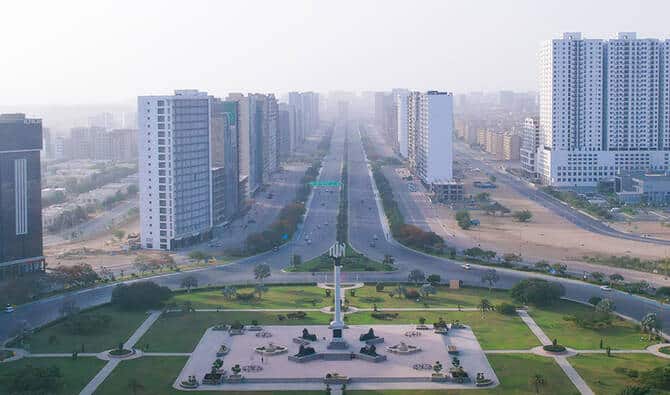The Bahria Town crisis is unfolding as a major threat to Pakistan’s economy and real estate sector. With reports of a shutdown, frozen bank accounts, and detained staff, the crisis is more than a localized legal battle—it is now endangering thousands of jobs, delaying development projects, and undermining investor confidence nationwide. Immediate and decisive government action seems essential to prevent long-term damage.
Unprecedented Government Pressure
Table of Contents
ToggleFirst, Bahria Town claims that relentless pressure from government bodies has phusical diability its operations. Assets have been seized, bank accounts frozen, and dozens of employees have reportedly disappeared from the payroll. According to the company, these actions have choked cash flow, making it impossible to pay salaries or continue development work.
Furthermore, Bahria Town insists it is seeking a fair dialogue, but the severity of recent measures—especially arrests and financial restrictions—leaves little room for constructive negotiation. Without a resolution, the company warns that shutdowns may be inevitable.
Economic Fallout for Pakistan
As the crisis deepens, so too do its broader economic consequences. Trillions of rupees in both public and private investment are now at risk. Any project left unfinished becomes “dead capital”—resources locked without yield. Jobs throughout the property, construction, and services sectors are becoming vulnerable.
Secondly, the real estate sector has long served as a key driver for Pakistan’s economy. If Bahria Town’s large-scale developments halt, the ripple effect could include reduced demand for raw materials, layoffs in supply chains, and diminished tax revenues. Investor confidence—already fragile—is unlikely to withstand another shock to the property market.
Impact on Employees and Residents
Third, the human cost can scarcely be overstated. Over 50,000 employees are reportedly affected, many with no clear idea when their next paycheck will arrive. Meanwhile, residents in Bahria Town’s communities face suspended maintenance and service outages. Families who invested life savings into homes are now uncertain about their property rights and financial security.
Moreover, the mental and emotional toll is rising. Residents describe anxiety, frustration, and lack of clarity about what the future holds—factors that go beyond economics. When investors lose trust, and residents lose belief, recovery becomes harder.
A Legacy of Development Under Threat
For two decades, Bahria Town has helped shape Pakistan’s modern real estate landscape—through housing societies in Lahore, Karachi, Islamabad, and more. It has been a major source of jobs, infrastructure development, and investment. However, if the ongoing crisis leads to complete shutdown, this legacy stands threatened. Roads, utilities, parks, and housing units that once represented progress may remain unfinished or deteriorate without upkeep.
Transitioning from development success to development freeze risks not only physical infrastructure decay, but also a loss of faith in future real estate projects across the country. Developers, investors, and communities will watch closely how this crisis is handled.
Call for Justice, Arbitration & Intervention
Bahria Town’s management is urging for fair arbitration and dialogue. They claim readiness to settle required dues, subject to agreed terms, and insist that punitive government measures are causing more harm than good. A just and transparent process could help restore investor confidence and protect both employees and residents.
At the same time, government agencies must consider the broader picture. Rather than continued crackdowns, proactive mediation, judicial oversight, and protective legislation may prevent irreparable damage. Time is of the essence. Pakistan needs to protect investments, safeguard jobs, and preserve its real estate sector’s contributions to GDP.
A Plea for Resolution
In conclusion, the Bahria Town crisis is more than a company in trouble—it is a national alarm. Without swift, fair, and transparent resolution, Pakistan may face deep economic repercussions: lost investment, stalled infrastructure, and widespread job losses. For the sake of the real estate sector and the economy at large, stakeholders must act now. Through mediation, legal clarity, and trust rebuilding, Pakistan can prevent disaster and hopefully restore stability.





